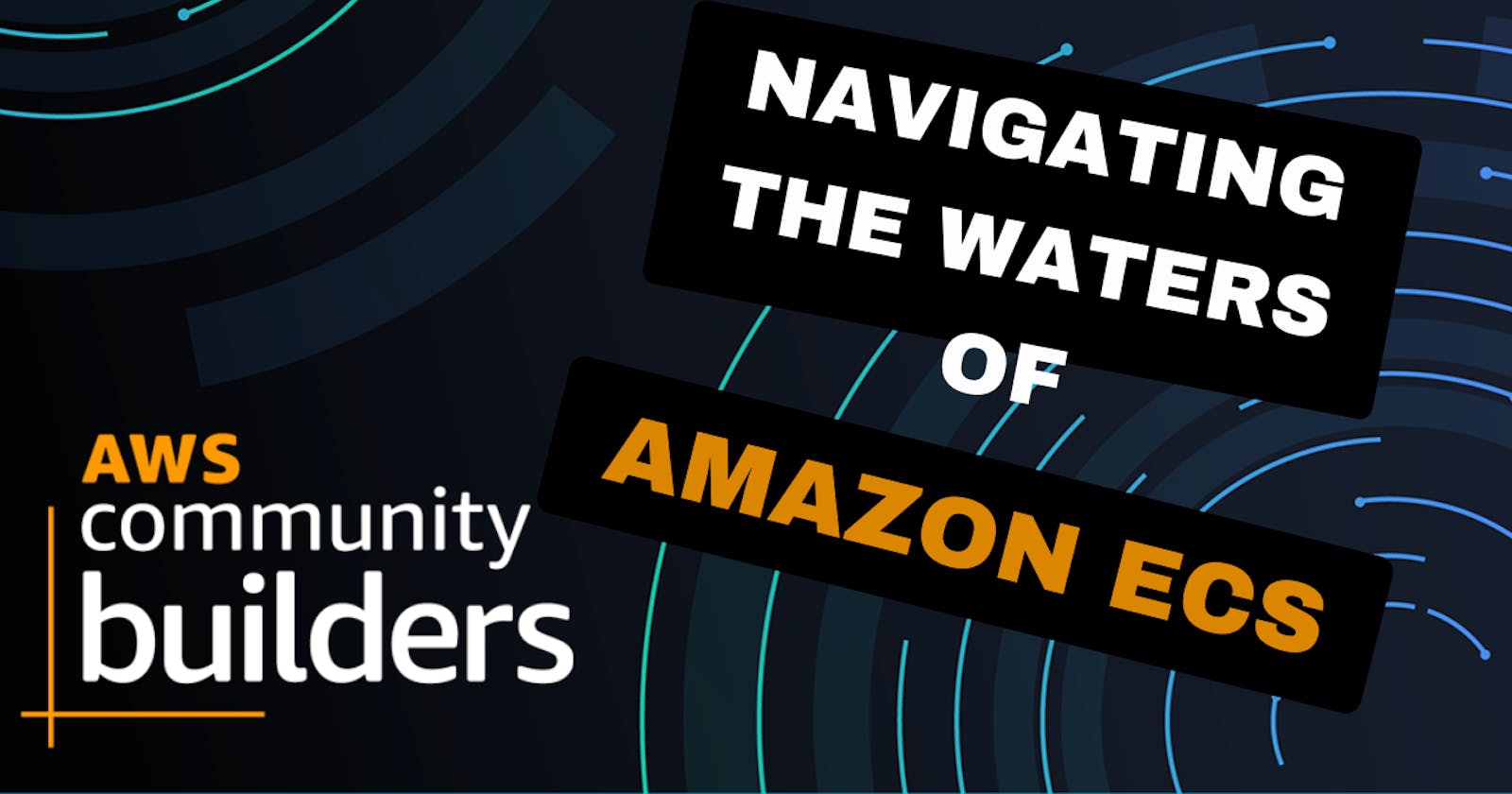Navigating the Waters of Amazon ECS: Your Voyage into Container Orchestration
Embarking on Containerization: Your Guide to Mastering Amazon ECS 📦
Table of contents
- 1. Containers and Orchestration: A Primer 📦🎼
- 2. Understanding Amazon ECS 🤔
- 3. Key Concepts of Amazon ECS 🛠️
- 4. Setting Up Your First ECS Cluster 🚢
- 5. Integrating with AWS Fargate 🌌
- 6. Monitoring with Amazon CloudWatch 👁️
- 7. Advanced Networking with ECS 🕸️
- 8. Continuous Deployment with ECS 🔄
- 9. Best Practices for ECS 🏆
- 10. Conclusion: Charting Your Course with ECS 🧭
Amazon Elastic Container Service (ECS) is a fully managed container orchestration service that makes it easy for you to deploy, manage, and scale containerized applications. In this article, we'll dive into the basics of ECS, and how it operates, and guide you through setting up your first containerized application.
1. Containers and Orchestration: A Primer 📦🎼
What are Containers?
Lightweight, portable units for application development.
Contains everything needed to run an application: code, runtime, system tools, libraries, and settings.
Why Orchestration?
Simplifies the management of complex, scalable applications.
Automates deployment, scaling, networking, and availability.
2. Understanding Amazon ECS 🤔
Amazon ECS allows you to run applications on a managed cluster of servers called container instances. You can use ECS to launch and stop container-based applications with simple API calls, and you get the performance and reliability of AWS.
Why Amazon ECS? 🌟
Simplified Operations: Manage clusters of containers with ease.
AWS Integration: Seamlessly integrates with AWS services like IAM, ECR, Load Balancing, and CloudWatch.
Flexibility: Supports both Docker and AWS Fargate, which allows you to run containers without managing servers or clusters.
3. Key Concepts of Amazon ECS 🛠️
Cluster: A group of container instances you manage.
Task Definitions: Blueprints for applications that define settings like Docker images, CPU and memory allocation, and more.
Service: Maintains a specified number of instances of a task definition simultaneously.
Container Instance: An EC2 instance that is part of an ECS cluster and runs the ECS agent.
4. Setting Up Your First ECS Cluster 🚢
Step 1: AWS Console Setup
Sign in to the AWS Management Console and find ECS under services.
Launch the ECS First Run Wizard, which guides you through the process.
Step 2: Configuring a Task Definition
Name your task definition and write a brief description.
Define container specifications, like image, CPU, and memory requirements.
Set network and storage if needed.
Step 3: Creating a Cluster
Name your cluster.
Choose an instance type and number of instances.
Set up networking and IAM roles.
Step 4: Launching a Service
Define the service name and the number of tasks to run.
Configure the load balancer if your service should be accessible over the internet.
Step 5: Managing and Scaling
Monitor your clusters, services, and tasks in the ECS dashboard.
Scale the number of tasks up or down based on demand.
5. Integrating with AWS Fargate 🌌
AWS Fargate removes the need to manage servers for containerized applications. Learn how to launch containers with ECS without having to provision and manage the underlying infrastructure.
6. Monitoring with Amazon CloudWatch 👁️
Gain insight into your ECS containers' performance and health by leveraging CloudWatch for monitoring, logging, and alarms.
7. Advanced Networking with ECS 🕸️
Dive into ECS networking capabilities, understanding how to isolate and secure communication between your containers with VPCs and service discovery.
8. Continuous Deployment with ECS 🔄
Explore strategies for continuous integration and deployment (CI/CD) with ECS and related AWS services, streamlining your development lifecycle.
9. Best Practices for ECS 🏆
Learn best practices for container management, security, cost optimization, and performance tuning to ensure your ECS-based applications run smoothly.
10. Conclusion: Charting Your Course with ECS 🧭
Amazon ECS is an excellent choice for developers looking to harness the power of containers without the overhead of orchestration. Whether you're running microservices, batch processing jobs, or machine learning applications, ECS provides the tools to efficiently manage your container ecosystem.
Embrace the container revolution with Amazon ECS and set sail for a horizon where application deployment is faster, more secure, and infinitely scalable. Your journey with containers is just beginning, and Amazon ECS is your steadfast vessel in the expansive sea of cloud computing. 🚀🌐
You can Buy Me a Coffee if you want to and don't forget to follow me on YouTube, Twitter, and LinkedIn.
If you have any questions or would like to share your own experiences, feel free to leave a comment below. I'm here to support and engage with you.
Happy Clouding! 🎉
